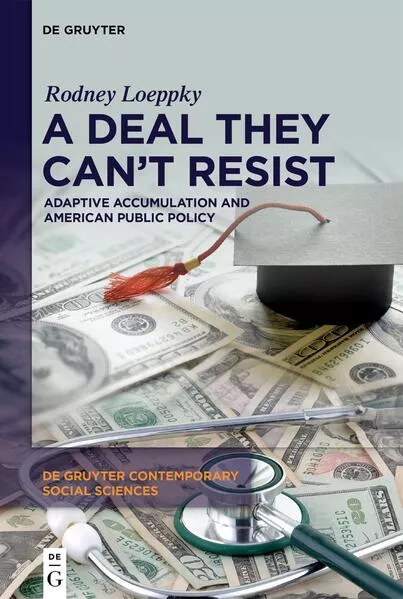
- Publikationen ca: 4
- Fragen & Antworten
Rodney Loeppky
Rodney Loeppky is Associate Professor in the Department of Politics, York University, Toronto, where he teaches in American Politics and the Politics of Health. He is author of Encoding Capital: A Political Economy of the Human Genome Project (Routledge) and Accumulation and Constraint: Biomedical Advancement and Advanced Industrial Health (Fernwood).
A Deal They Can’t Resist
This work argues that a component part of US neoliberalism involves adaptive accumulation, a process in which capital seeks to enlarge public programs, as a means to reroute public revenues into private revenue streams. Along the way, corporations project quasi-public aspirations as a central part of their commercial mission, as the state carves out new – or expands old – areas of accumulative growth for corporate America.
A Deal They Can’t Resist
This work argues that a component part of US neoliberalism involves adaptive accumulation, a process in which capital seeks to enlarge public programs, as a means to reroute public revenues into private revenue streams. Along the way, corporations project quasi-public aspirations as a central part of their commercial mission, as the state carves out new – or expands old – areas of accumulative growth for corporate America.
A Deal They Can’t Resist
This work argues that a component part of US neoliberalism involves adaptive accumulation, a process in which capital seeks to enlarge public programs, as a means to reroute public revenues into private revenue streams. Along the way, corporations project quasi-public aspirations as a central part of their commercial mission, as the state carves out new – or expands old – areas of accumulative growth for corporate America.
A Deal They Can’t Resist
This work argues that a component part of US neoliberalism involves adaptive accumulation, a process in which capital seeks to enlarge public programs, as a means to reroute public revenues into private revenue streams. Along the way, corporations project quasi-public aspirations as a central part of their commercial mission, as the state carves out new – or expands old – areas of accumulative growth for corporate America.



